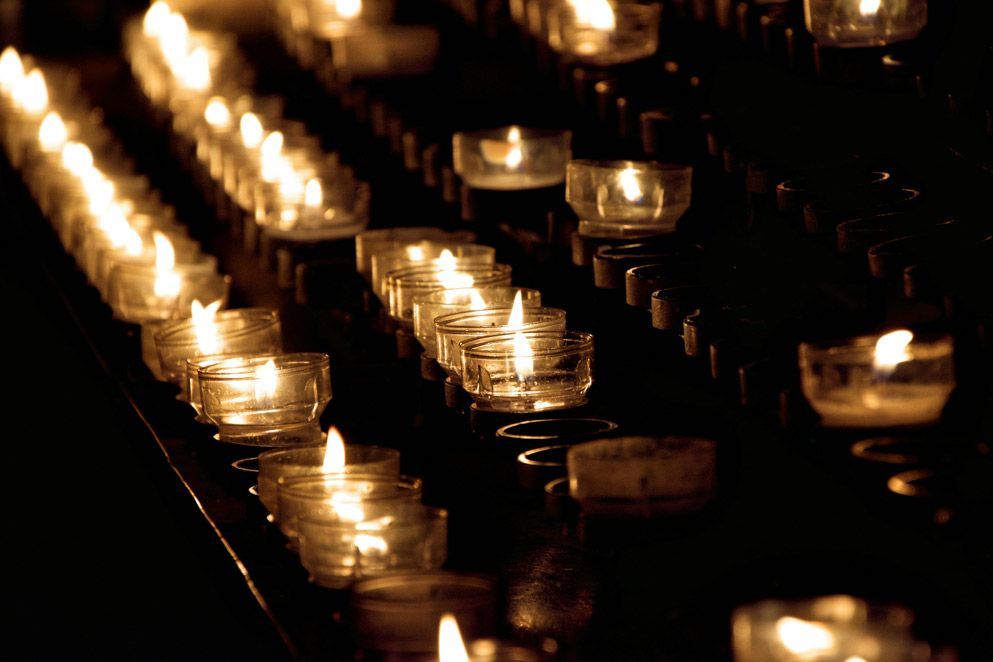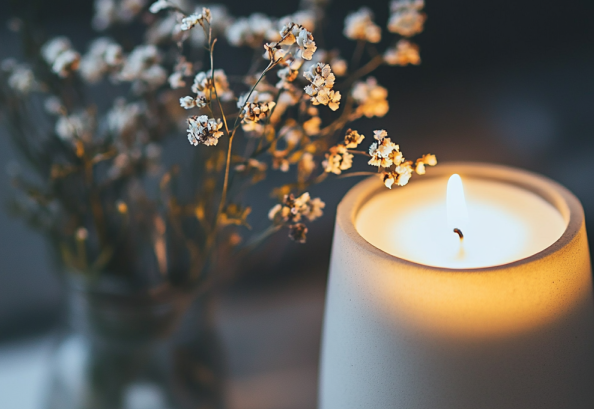How to Get Better Sleep After Losing a Loved One

Grief affects every part of us—our hearts, our minds, and even our ability to sleep. After losing someone close, restful sleep can feel impossible. Whether it’s racing thoughts, nightmares, or waking up in the middle of the night, many people experience disrupted sleep while mourning. Restlessness, vivid dreams, and sleepless nights are common, yet the body and mind need sleep more than ever during this time of healing.
Whether you're in the early stages of mourning or still adjusting months later, know that you're not alone. In times of loss, many families turn to trusted places like McCullough Funeral Home—not just for funeral arrangements, but for the care and compassion that helps carry them through. As one of the most respected funeral homes Warner Robins, GA, we understand that grief doesn’t stop at the service, often into the quiet hours of the night when sleep feels far away.
Understanding How Grief Affects Sleep
Grief doesn’t follow a schedule, and its impact on sleep can be both unexpected and overwhelming. At night, when the world quiets down, emotions often rise to the surface. Racing thoughts and memories may keep you awake, and for many, bedtime becomes the hardest part of the day. Sadness, anxiety, or loneliness can settle in just as you're trying to rest, and vivid dreams or nightmares may leave you feeling drained by morning.
Grief affects the body as much as the heart. Tension, headaches, and restlessness can make it hard to relax, even when you’re exhausted. You might wake often or too early, never feeling fully rested. With your mind working overtime to process the pain, it’s no wonder sleep can become such a struggle.
Common Sleep Disruptions During Grief
Grieving hearts often struggle with sleep in deeply personal and difficult ways. Some of the most common disruptions include:
- Difficulty falling asleep – Emotional distress, racing thoughts, or feelings of sadness can make it hard to relax enough to drift off.
- Frequent awakenings during the night – You may find yourself waking up several times, unable to stay asleep for long stretches.
- Early morning waking – Many people wake far earlier than usual and feel unable to fall back asleep, starting the day feeling drained.
- Avoidance of bedtime – For some, the quiet hours of the night bring too many thoughts or painful memories, leading to delayed or avoided sleep altogether.
While these responses to grief are completely normal, ongoing sleep loss can begin to take a real toll on both your mind and body.
Build a Soothing Routine: Sleep Hygiene Tips
Establishing healthy sleep habits, or “sleep hygiene,” is one of the most effective ways to promote rest during grief:
- Stick to a consistent sleep schedule—even on weekends.
- Create a relaxing bedtime routine: take a warm shower, read a calming book, or practice deep breathing.
- Avoid screens and caffeine for at least an hour before bed.
- Use low lighting and calming scents like lavender in your bedroom.
These small adjustments can help signal to your body that it’s time to wind down.
Talk It Out: Emotional Support Can Improve Sleep
Bottled-up emotions often bubble up at night. Speaking with someone—whether a close friend, family member, or professional—can help clear mental clutter before bedtime. Consider keeping a journal to release your thoughts before bed. Simply writing down what’s on your mind can help your brain quiet down.
Create a Sleep-Friendly Environment
Transform your bedroom into a place of comfort and calm—it should feel like a sanctuary where you can gently unwind from the day. Creating a peaceful environment can help signal to your body that it's safe to relax, making it easier to fall asleep and stay asleep.
- Use white noise machines or calming music.
- Keep the room cool, dark, and quiet.
- Remove overly emotional reminders if they trigger distress.
- Try a weighted blanket for added security and relaxation.
Support Sleep Through Healthy Living
While grief may sap your energy, try to:
- Take a walk outdoors daily—sunlight and light activity can reset your circadian rhythm.
- Eat balanced meals and stay hydrated.
- Avoid long naps, which can throw off your sleep schedule.
- Even minimal self-care can help restore a sense of control and promote better rest.
When to Seek Professional Help
If you’re still having trouble sleeping after a few weeks—or if it’s starting to affect your day-to-day life—it’s okay to ask for help. You’re not alone, and there are gentle ways to start feeling better. Many people find that talking with a therapist or grief counselor can make a big difference. Cognitive behavioral therapy (CBT) is one helpful approach that can ease anxious thoughts and improve sleep. In some cases, a doctor might suggest short-term sleep aids to help you get the rest you nee
Finding Rest When Grief Feels Overwhelming
Healing doesn’t happen overnight—but sleep can be a powerful ally in your journey through loss. Be gentle with yourself. Try small changes to support rest. And remember, compassionate resources are available to guide you through this difficult time.
If you're in need of both caring funeral home Warner Robins, GA arrangements and continued support through your grief, McCullough Funeral Home are here to help you rest, recover, and begin healing. Call us today at (478) 953-1478 and connect with a team that truly understands what you're going through.












